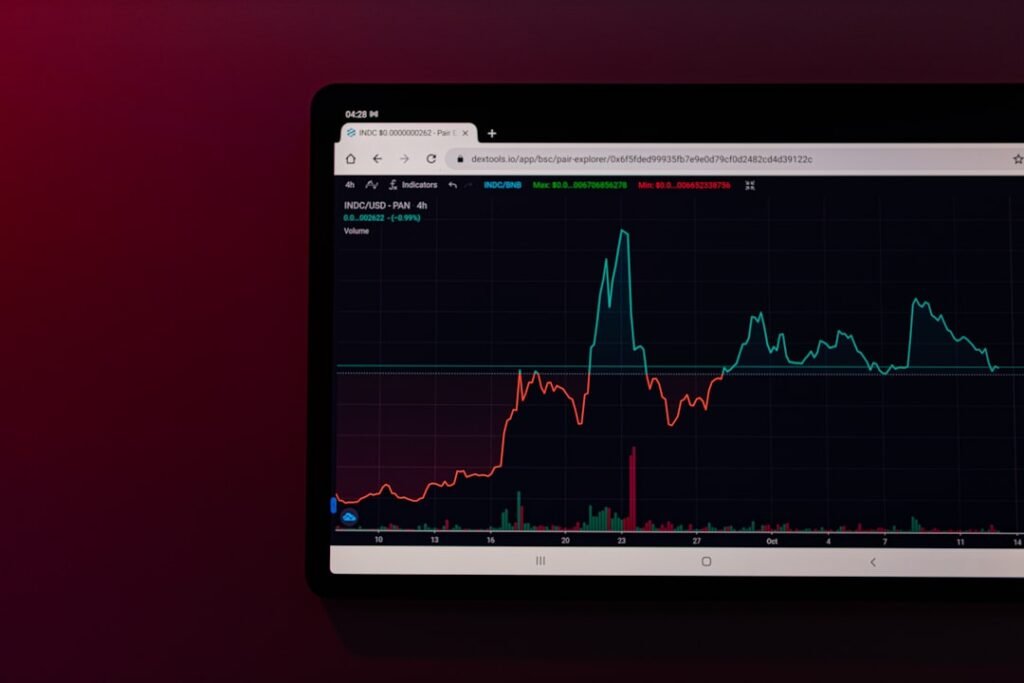Unlock New Revenue Streams: A Fintech's Guide to White Label Crypto Exchange Solutions The digital asset revolution is no longer a distant future—it's a present-day reality reshaping the financial landscape. For fintech companies, this represents both an unprecedented opportunity and a formidable challenge. Customers increasingly demand access to cryptocurrency trading, tokenized assets, and blockchain-based payment systems. Building these complex, secure, and compliant platforms from the ground up, however, is a monumental task requiring years of development and millions in investment. This is where white-label solutions emerge as a strategic game-changer. White-label cryptocurrency exchange software provides a pre-built, fully functional trading platform that fintechs can license, customize with their own branding, and launch under their own name. It's the equivalent of moving into a state-of-the-art, fully furnished building instead of pouring the foundation and welding the steel yourself. This approach allows established financial technology firms to enter the crypto market with speed, security, and scalability, leveraging proven infrastructure while focusing on their core competency: serving their customers. This article will serve as a comprehensive guide for fintech companies considering this path. We will delve into the critical features that define a robust white-label solution, analyze leading platforms in the space, and provide a strategic framework for selecting and launching your own branded crypto service efficiently and securely. Why White-Label Solutions are the Strategic Choice for Fintech Expansion The decision to adopt a white-label solution is fundamentally a strategic one, centered on resource allocation and time-to-market. For a fintech company, the advantages are multifaceted and directly impact the bottom line. Speed to Market: Launch in Weeks, Not YearsThe most significant advantage is acceleration. Developing a secure, high-performance trading engine, integrating liquidity providers, and building robust wallet systems can take a development team years. A white-label solution condenses this timeline dramatically. Platforms like those offered by industry leaders allow for deployment in a matter of weeks. This rapid launch capability enables fintechs to capitalize on market opportunities, meet evolving customer demands immediately, and establish a first-mover advantage in their niche. Cost Efficiency: Avoid Massive Capital ExpenditureBuilding a custom exchange involves a substantial upfront investment in software development, cybersecurity, and compliance architecture. Ongoing costs for maintenance, upgrades, and security audits add to the total cost of ownership. White-label solutions operate on a different model—typically a licensing fee or a revenue-sharing agreement. This transforms a large capital expenditure (CapEx) into a more manageable operational expenditure (OpEx), preserving vital capital for marketing, customer acquisition, and other core business activities. Access to Proven, Scalable TechnologyA reputable white-label provider has already weathered the storms of high-frequency trading, security threats, and regulatory changes. Their technology is battle-tested. For instance, AlphaPoint’s White Label Exchange Software boasts a matching engine with lightning-fast processing speeds, capable of handling the demands of institutional and retail trading. By choosing such a platform, a fintech inherits this scalability and reliability from day one, ensuring the platform can grow alongside its user base without performance degradation. Built-in Security and Compliance FrameworksSecurity is the bedrock of any financial service. White-label providers invest heavily in enterprise-grade security features that would be costly and complex to develop independently. These include: Multi-signature wallets: Requiring multiple keys to authorize a transaction, drastically reducing the risk of theft. Cold storage solutions: Keeping the majority of digital assets offline in secure vaults, inaccessible to online threats. DDoS protection: Shielding the platform from malicious traffic attacks designed to cause downtime. KYC/AML integration: Pre-built modules for identity verification and anti-money laundering checks that help meet global regulatory standards. This pre-integrated security and compliance layer not only protects the fintech and its customers but also significantly shortens the path to regulatory approval in various jurisdictions. Critical Features to Evaluate in a White-Label Crypto Platform Not all white-label solutions are created equal. A thorough evaluation based on the following features is essential to select a partner that aligns with your business goals and risk tolerance. 1. Security: The Non-Negotiable Foundation When it comes to handling digital assets, security cannot be an afterthought. It must be woven into the platform's very fabric. Beyond the basic features mentioned above, look for: Two-Factor Authentication (2FA): A mandatory login feature for all users. Regular Penetration Testing and Audits: Evidence that the provider proactively seeks out and patches vulnerabilities. Some providers, like ChainUp, emphasize a "three-layer wallet security framework" and anti-fraud systems. Insurance Options: Some providers offer or facilitate insurance coverage for digital assets held on the platform, providing an extra layer of protection and customer confidence. 2. Liquidity: The Lifeblood of Your Exchange An exchange without liquidity is a marketplace without goods. Users will not trade on a platform where they cannot execute orders quickly and at fair prices. Leading white-label solutions solve this problem by providing integrated access to global liquidity pools. B2Broker’s Crypto Exchange Turnkey Solution, for example, emphasizes its ability to connect to deep liquidity sources, ensuring tight bid-ask spreads and high trading volumes from the moment of launch. This immediate access to liquidity is a critical advantage over building a network of market makers independently. 3. Customization and Branding Control While the underlying technology is pre-built, the user-facing experience must be uniquely yours. The best platforms offer extensive white-labeling capabilities, allowing you to: Implement your logo, color scheme, and overall visual identity seamlessly. Customize the user interface (UI) for different user types (e.g., a simplified view for beginners and an advanced trading view for professionals). Add or modify features to create a unique value proposition, such as integrating proprietary staking rewards or loyalty programs. 4. Regulatory Compliance Tools The regulatory environment for digital assets is complex and varies by country. A robust platform should have compliance tools that can be configured for different regions. This includes: Flexible KYC/AML Workflows: Adaptable verification processes that can meet the requirements of jurisdictions like the EU (under MiCA), the U.S., or Singapore. Audit Trails: Comprehensive logging of all transactions and administrative actions for regulatory reporting and internal risk management. Geo-blocking Capabilities: The ability to restrict access from countries where your fintech is not licensed to operate. 5. Performance and Reliability The platform must handle peak trading volumes without latency or downtime. Key performance indicators to inquire about include: Transactions Per Second (TPS): The capacity of the matching engine. ChainUp, for instance, claims its advanced memory-matching engine can process up to 50,000 TPS. Uptime Guarantees: Look for providers that offer service level agreements (SLAs) with high uptime percentages (e.g., 99.9%). API Robustness: A well-documented and high-performance API is crucial for attracting professional traders and integrating with third-party tools. Leading White-Label Crypto Exchange Solutions for Fintechs Several established providers offer powerful white-label solutions. Here is an analysis of some of the top contenders: 1. AlphaPoint’s White Label Exchange Software AlphaPoint positions itself as an enterprise-grade solution, trusted by over 150 exchanges and brokers worldwide. Its strength lies in its combination of high performance and flexibility. Key Features: A powerful matching engine, automated market-making tools, and support for thousands of digital assets, including security tokens. It also offers custody and yield options like lending and staking. Best For: Fintechs and financial institutions looking for a scalable, high-performance platform with global reach and institutional-grade features. 2. B2Broker’s Crypto Exchange Turnkey Solution B2Broker is known for its liquidity provisioning services, and its turnkey exchange solution leverages this strength. Key Features: Built on B2Core and B2Trader technologies, it offers a customizable UI, comprehensive reporting tools, and support for multiple payment gateways. Its deep integration with liquidity providers is a major selling point. Best For: Businesses that prioritize immediate and deep liquidity from day one, along with a fast and secure setup. 3. PayBitoPro PayBitoPro offers a versatile platform that emphasizes accessibility and security across multiple devices. Key Features: Multi-currency support (crypto and fiat), built-in SegWit for efficient transactions, and availability on web, Android, and iOS. Its multi-signature wallet architecture is a key security highlight. Best For: Startups and established businesses seeking a user-friendly, multi-platform solution with strong security foundations. 4. Antier Solutions’ White Label Crypto Exchange Antier Solutions focuses on delivering feature-rich and highly scalable exchange platforms. Key Features: Advanced trading modules like spot and margin trading, automated KYC integration, and features like referral systems and staking support. Best For: Growing businesses that need a scalable platform with modern trading features to engage and retain users. 5. ChainUp’s White Label Crypto Exchange Solution ChainUp provides a comprehensive solution that supports both centralized and decentralized exchange models. Key Features: Support for spot, OTC, and futures trading, a high-performance matching engine, and an integrated liquidity pool connected to over 300 exchanges. Best For: Fintechs aiming to tap into diverse trading markets (spot, derivatives) and who value high throughput and extensive third-party API integrations. A Strategic Roadmap for Launching Your White-Label Exchange Selecting the right provider is only the first step. A successful launch requires careful planning and execution. Define Your Business Model and USP: Clearly articulate how you will generate revenue (trading fees, withdrawal fees, premium services) and what will make your exchange unique. Will you focus on a specific asset class, like tokenized real-world assets (RWA), or cater to a particular geographic market? Prioritize Security and Legal Compliance: Work closely with your provider and legal counsel to ensure the platform's configuration meets the regulatory requirements of your target markets. Conduct thorough security assessments before going live. Execute a Phased Customization: Work with the provider to implement your branding and any custom features. Avoid over-customizing initially; launch with a solid, reliable product and iterate based on user feedback. Develop a Robust Go-to-Market Strategy: Your launch plan should include content marketing to educate your audience, partnerships with influencers in the crypto space, and a strong focus on community building through channels like Telegram and Discord. Plan for Ongoing Support and Optimization: The crypto market evolves rapidly. Ensure you have a plan for customer support, regular platform updates from your provider, and a strategy for adding new features and assets based on market trends. Conclusion: Embracing the Future of Finance with Confidence For fintech companies, the question is no longer if they should offer digital asset services, but how they can do so most effectively. Building an exchange from scratch is a resource-intensive path fraught with technical and regulatory risk. White-label cryptocurrency exchange solutions offer a compelling alternative, providing a secure, compliant, and scalable foundation for rapid market entry. By leveraging the proven technology of established providers, fintechs can bypass the immense hurdles of development and focus on what they do best: building their brand, engaging their customers, and creating innovative financial products. This strategic approach allows them to unlock new revenue streams, meet customer demand, and position themselves at the forefront of the evolving financial ecosystem with confidence and agility. The future of finance is digital, and white-label solutions provide the key to unlocking its door.












